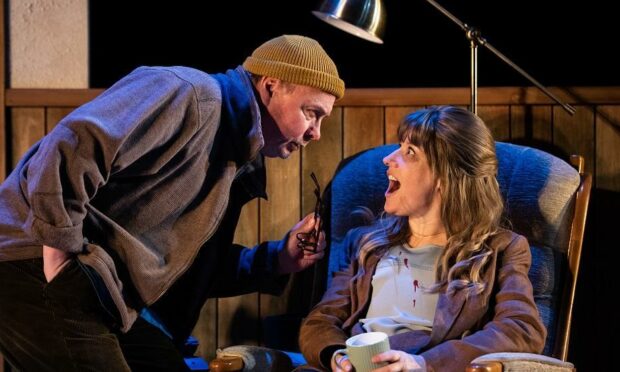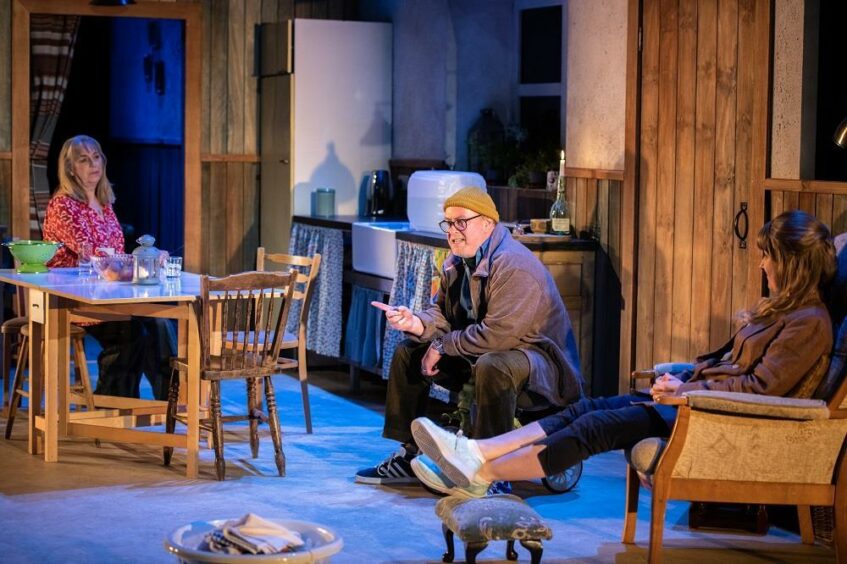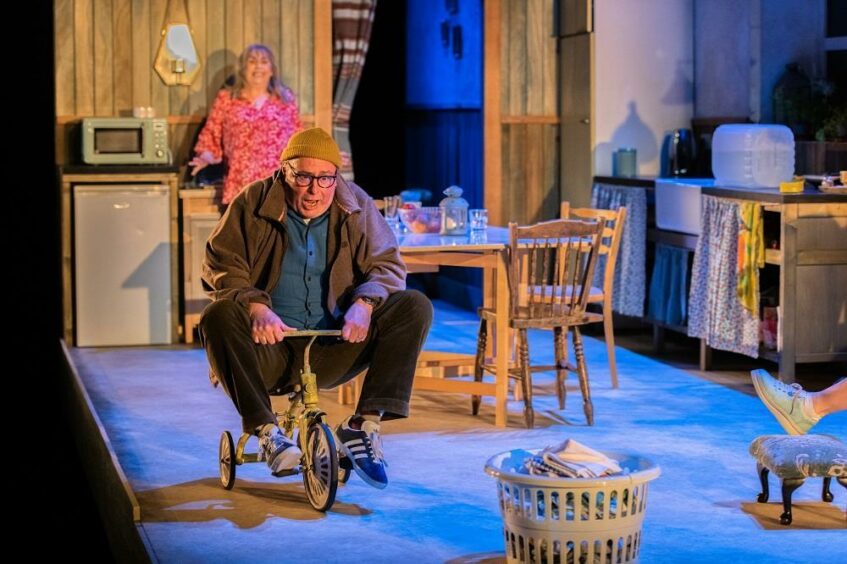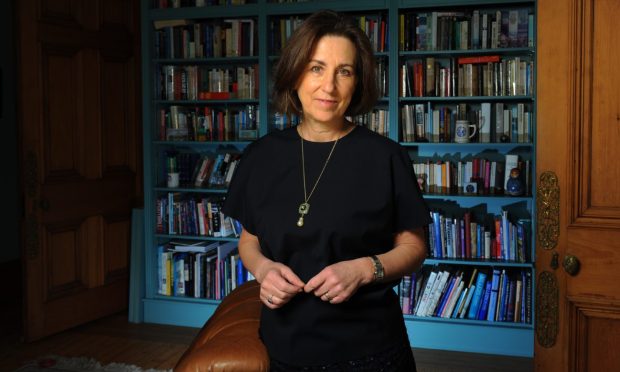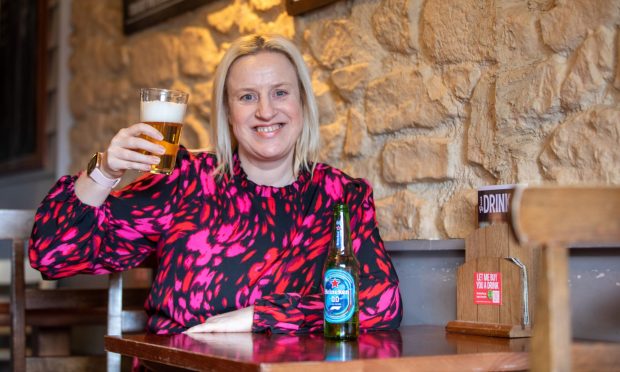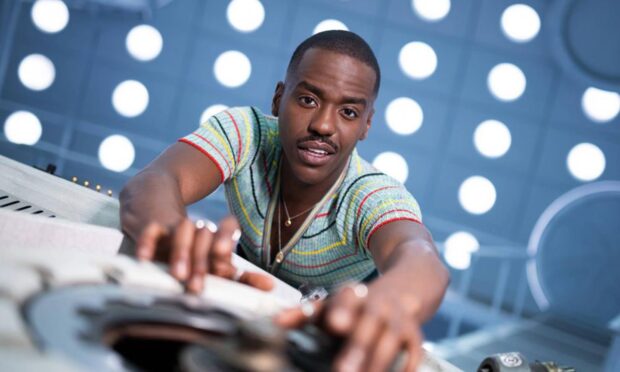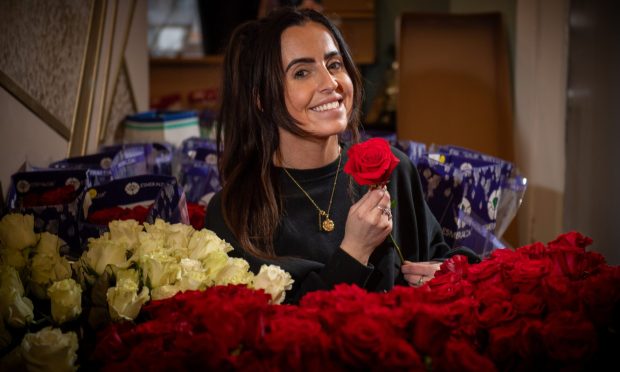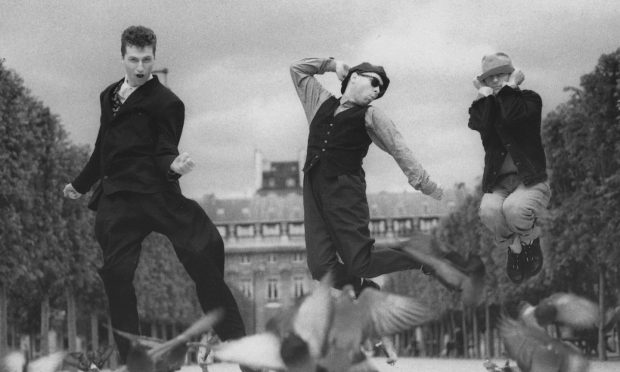Ever since it first appeared on the stage of London’s Royal Court theatre in late 2016, even before he’d taken over as artistic director at Dundee Rep, Andrew Panton wanted to create an adaptation of Lucy Kirkwood’s play The Children.
“In my naivety, I thought I might be able to get the rights for my first season at Dundee Rep,” he says.
“I learned a lot about how long it can take to get rights, especially when the play’s a hit, because it transferred straight to Broadway, so the rights weren’t available for a while.
“It’s just a brilliant play, in all kinds of ways. It’s perfect ensemble theatre, the three characters can’t exist to tell the story without the other two – it’s one of those rare three-handers that’s equally written for all three characters.”
Tony award nomination
Panton admires the deceptive simplicity of the play, which was nominated for a Tony Award after its Broadway run in 2018, following up Kirkwood’s slew of awards for her predecessor play Chimerica in 2013 and ’14.
The Children tells of the near-future aftermath of a nuclear incident on the east coast of Scotland, where retired nuclear engineers Hazel and Robin are joined at their house by an old friend, Rose, for reasons which aren’t immediately clear.
“It’s finally landed this season, which is better than when I’d wanted to programme it,” he says. “Its themes are both epic and kitchen sink – in fact, it’s told literally around the kitchen sink, and there’s a fridge and a kitchen table.
These themes affect us as human beings, and they affect the world.
Coming out of a two-year pandemic and last year’s Cop26, because that brought a lot of environmental themes to the fore, there’s never been a better time to tell this story.”
‘It’s been called an eco-thriller’
“We learn more about the significant event, and about the characters’ relationships. We go on a voyage of discovery with them. It’s part relationship drama and part black comedy.
“Everything I’ve said sounds full-on and dramatic, but it’s very funny writing. It’s been called an eco-thriller, which is a term I like.
“You really don’t know what’s going to happen next, but it’s not just about twists and turns like a conventional thriller. It connects to themes of what we hand on to our children, the legacy of our relationship with our planet. Massive themes, told in a very intimate way.”
Irene Macdougall is one of the three Rep Ensemble actors in the play, taking the role of Hazel.
“Lucy’s writing is interesting, because for a long time you think it’s a relationship play and it isn’t,” she says.
“It takes you down a path and then veers off in another direction – and it’s difficult to talk about that, because that’s why it’s an eco-thriller. No spoilers.”
Macdougall describes the writing as funny, although none of it’s played for laughs.
The closest comparison she can think of is the playwright Alan Ayckbourn.
“His plays are some of the saddest I’ve ever done, even though people find them very funny. Often the characters are really toiling, but they’re still funny.
“This play is more contemporary than that, and I’ve never come across anything quite as conversational.
A captivating story
“Lucy’s writing is very good at just being ordinary. They’re just people getting on with their lives, while weaving in a very captivating story. You really don’t know where it’s going to go, you don’t even really know what it’s about until towards the end. She’s writing massive themes with wonderfully ordinary conversation, it’s very clever.”
The layout of the theatre will be altered, says Panton, to make the performance feel more intimate for the audience.
What do they want the audience to take from the play?
“I don’t think you can prescribe that,” says Macdougall, “but if we get a chance to talk to members of the audience, it’d be great to hear, because it will certainly create conversation and debate. I think different audience members will think very different things.”
‘It asked me to reassess my priorities’
“I can only speak personally, but it asked me to reassess my priorities and… not my place in the world, but my responsibilities,” says Panton.
“That seems terribly earnest, but it’s not. It’s provocative, it’s not telling you what to think.
“It’s just saying you can’t be passive, you’ve got to have an opinion about these things.
“(In a theatre audience) I always want to have a role to play – I need to know, why am I here? Otherwise I’m passive, I might as well stay at home and watch Netflix.
“This play provide a role for the audience to work out what they think about these things.”
The Children is at Dundee Rep Theatre until Saturday March 19. dundeerep.co.uk
